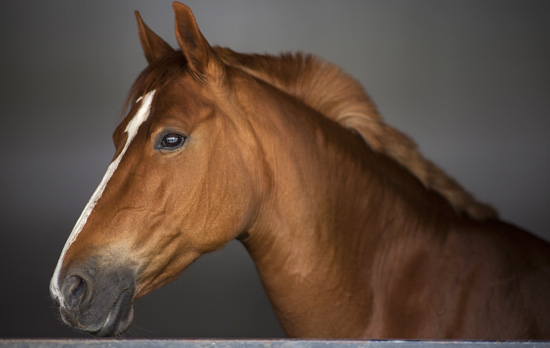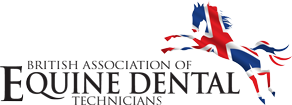Owner Information
Why horses need dental work
Due to the domestication of equidae (horses and donkeys) we have taken an animal that would naturally spend 16-18 hours grazing and travel up to 20 miles looking for food in one day and we have stabled or restricted their ability to roam, as well as change the type of forage available to them.
Horses’ teeth are designed to deal with hard grasses, however we now provide our horses with maintained paddocks, with soft lush grasses, and when grass is not readily available we supplement their diet with either hay or haylage which is equally soft. Horses no longer naturally wear their teeth as much as they are designed to, causing sharp enamel points and protuberant teeth to develop.
These dental overgrowths can restrict their ability to work in an outline when ridden and driven. It is normal for a horse’s mandible (lower jaw) to move backwards and forwards as the head moves up and down respectively. Thus any overgrowth such as hooks on the first upper cheek teeth or on the last lower cheek teeth will inhibit this movement and result in reluctance to working in a correct outline. Often horses rely on opening their mouths to allow their mandible to slide forwards. This is often seen as a sign of evasion and results in the application of a tight noseband.
A more worrying result of sharp teeth, is the development of large areas of soft tissue damage and ulceration affecting the tongue and gums.
Another common problem that horses suffer from is periodontal disease (inflammation of the periodontal ligaments between the tooth and the gums. One cause of this is impaction of grass and other forage in small gaps called ‘diastema’ between the teeth. Food impaction then leads to inflammation and infection in the periodontal space and eventually, loosening of the teeth.
Horses also suffer from fractured teeth, normally as a result of decay within the tooth rather than external forces.
Most of the time these conditions are not visible from the outside of the horse and cannot be identified without the use of proper equipment, eg. a gag , head torch, dental mirror and picks. Therefore regular dental check-ups are a necessity.

“Owner knowledge is the key to a healthy horse”

